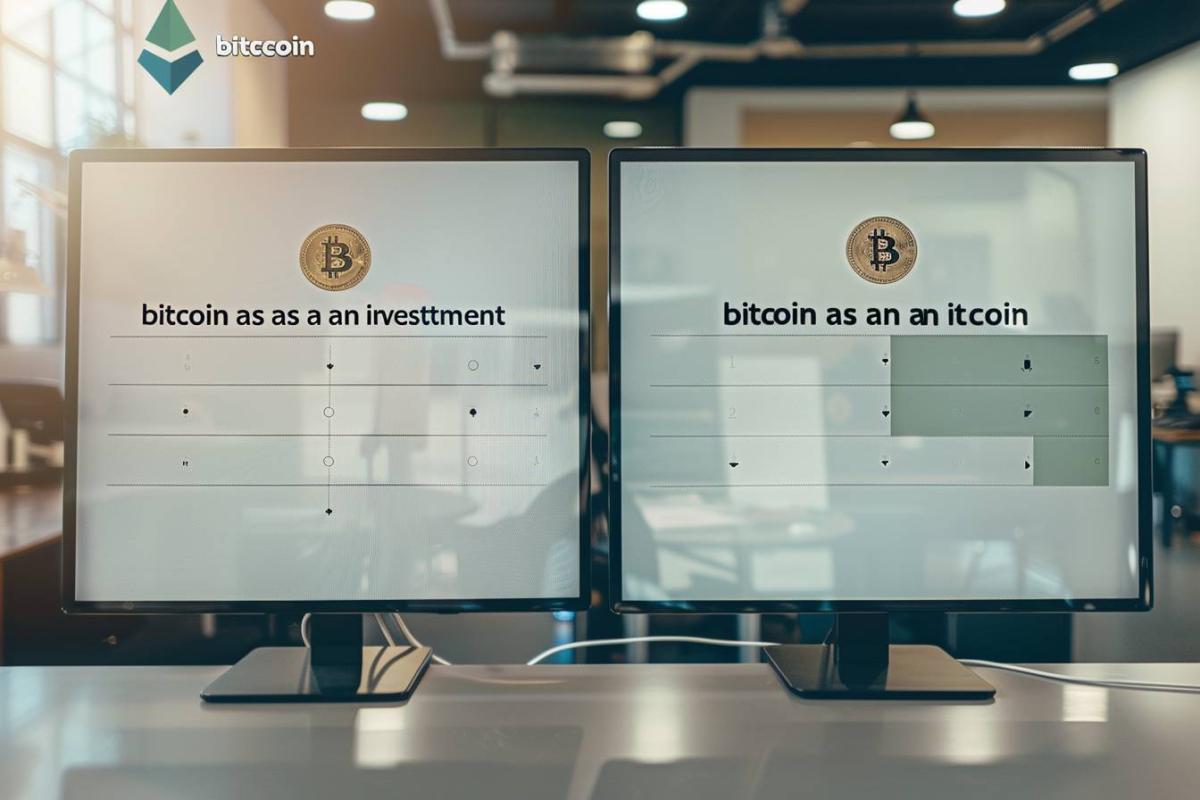Bitcoin, this virtual currency that has generated a lot of ink, continues to fascinate and intrigue. As a versatile and curious writer, I have immersed myself in the twists and turns of this cryptocurrency to offer you complete insight into its issues and how it works. So, is Bitcoin really the promised monetary revolution or simply a high-risk investment? Let’s explore together the different facets of this phenomenon which is shaking up our traditional conception of money.
Sommaire
What is Bitcoin and how does it work?
Bitcoin, created in 2009 by a mysterious character under the pseudonym Satoshi Nakamoto, is the first and most famous of cryptocurrencies. Unlike traditional currencies, Bitcoin operates in a decentralized manner, without any central authority to control it. This feature is at the heart of its appeal for many users.
The functioning of Bitcoin is based on the blockchain technology, a distributed ledger that records all transactions securely and transparently. Here are the main elements to understand:
- Blockchain is a chain of blocks containing information about transactions
- Miners validate transactions and create new bitcoins
- The total number of bitcoins is limited to 21 million
- Transactions are pseudonymous, providing a degree of anonymity
Always on the lookout for new subjects to explore, I became interested in the different promising cryptocurrencies which emerged in the wake of Bitcoin. However, it is essential to note that Bitcoin remains the best-known and most traded cryptocurrency to date.
Bitcoin: between digital currency and volatile investment
One of the central questions that drives the debates around Bitcoin is its status: is it a real digital currency or rather a speculative asset? The answer is not simple and depends largely on how you use it.
On the one hand, Bitcoin has certain characteristics of a currency:
- It can be used to make transactions
- Some businesses and businesses are starting to accept it as a means of payment
- Countries like El Salvador have even adopted it as legal tender
However, Bitcoin suffers from high volatility which limits its adoption as a stable medium of exchange. This volatility makes it a high-risk investment, attracting speculators and investors looking for quick gains.
Here is a comparative table of the characteristics of Bitcoin as a currency and as an investment:
| Appearance | Digital currency | Investment |
|---|---|---|
| Stability | Weak | Very volatile |
| Adoption | Limited | Growing |
| Regulation | In development | Still blurry |
| Earning potential | Limit | High (but risky) |
Risks and challenges related to Bitcoin
Able to juggle various fields, I have also considered the many risks and challenges associated with Bitcoin. It is essential to be aware of this before venturing into it:
1. Security and scams : The world of cryptocurrencies is unfortunately ripe for scams. Many scams exist, often exploiting the ignorance of novice investors. It is essential to be well informed and to remain vigilant.
2. Evolving regulation : The regulatory framework around cryptocurrencies is still under construction. In Europe, the MiCA (Markets in Crypto-Assets) regulation is being prepared to regulate this sector. This regulatory uncertainty may have significant implications for Bitcoin holders.
3. Use for illicit purposes : The pseudonymity of Bitcoin transactions has unfortunately attracted illegal activities such as money laundering or terrorist financing. This association harms the image and adoption of Bitcoin.
4. Extreme volatility : Bitcoin price fluctuations can be dizzying. This volatility makes it a very risky investment, which can lead to considerable losses in a short time.
Faced with these challenges, it is vital to adopt a careful and informed approach. Here are some tips to minimize risks:
- Never invest more than you can afford to lose
- Diversify your investments beyond cryptocurrencies
- Use reputable and secure exchange platforms
- Secure the storage of your bitcoins, ideally in a “cold” wallet (offline)
- Stay informed of regulatory and tax developments
Future Outlook for Bitcoin
Despite the challenges, Bitcoin and cryptocurrencies continue to attract strong interest. Their disruptive potential for the traditional financial system cannot be ignored. Here are some trends to watch for:
Growing Adoption : More and more companies and institutions are interested in Bitcoin, whether as a means of payment or as a store of value. This trend could help stabilize its price in the long term.
Technological innovation : The blockchain technology that underpins Bitcoin continues to evolve. THE smart contracts and other innovations could open up new possibilities for use.
Response from central banks : Faced with the rise of cryptocurrencies, several central banks are studying the possibility of issuing their own digital currencies (MNBC). These developments could have a significant impact on the cryptocurrency ecosystem.
In short, Bitcoin remains a complex and constantly evolving subject. Between revolutionary digital currency and highly speculative investment, it continues to divide opinions. One thing is certain: Bitcoin has opened the way to deep reflection on the future of money and financial systems in the digital age.


